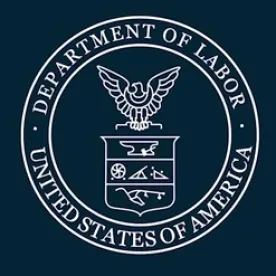The U.S. Department of Labor, U.S. Department of Health and Human Services, and U.S. Department of the Treasury recently issued regulatory guidance on the requirement that health plans cover pre-exposure prophylaxis (PrEP) treatment—“a comprehensive intervention comprised of antiretroviral medication and essential support services”—on a first-dollar basis for individuals at high risk of contracting human immunodeficiency virus (HIV). In addition, the agencies announced a nonenforcement period, which expires September 17, 2021, to give plans time to come into compliance.
The HIV PrEP requirement falls under the preventive care mandate of the Affordable Care Act (ACA) for items or services with an “A” or “B” rating from the U.S. Preventive Services Task Force (USPSTF). When PrEP is provided by an in-network provider, plans must cover PrEP with “effective antiretroviral therapy” before an individual meets his or her deductible, without imposing any other cost-sharing requirements, such as copayments or coinsurance. This requirement went into effect for plan or policy years beginning on or after June 30, 2020, (January 1, 2021, for calendar-year plans).
The guidance, issued in the form of frequently asked questions (FAQs), provides that plans must also provide first-dollar coverage of any services related to PrEP treatment. These include services that a plan participant may receive prior to antiretroviral medication as part of the determination of whether such medication is necessary; “baseline and follow-up testing and monitoring”; and essential antiretroviral medication support services such as “medication self-management/adherence counseling, risk reduction strategies, and mental health counseling, etc.”
Services prior to antiretroviral medication determine whether an individual has contracted HIV and whether he or she is contraindicated for PrEP treatment. These services include testing for HIV, hepatitis B and C virus, sexually transmitted infections, “calculated estimated creatine clearance (eCrCl) or glomerular filtration rate (eGFR),” and pregnancy. The USPSTF also recommends HIV testing every three months during PrEP treatment and adherence counseling as ongoing services during antiretroviral medication therapy. The guidance provides that plans must cover these related services without cost sharing, as well as the office visits associated with such services, if the primary reason for the office visits is the related services and they are billed together.
Recognizing that plans and issuers may not have understood that the coverage requirement applies to all support services of the USPSTF’s recommendation for PrEP, the agencies stated that they would not take enforcement action against a plan or issuer for failing to provide coverage for such services through September 17, 2021 (60 days after publication of the FAQ guidance on July 19, 2021).
The ACA preventive care regulations provide that “[p]lans and issuers may use reasonable medical management techniques to determine the frequency, method, treatment, or setting” for a recommended preventive service “only to the extent not specified in the applicable recommendation or guideline” of the service. The guidance clarifies that medical management techniques such as frequency limitations are not permissible with respect to certain PrEP services, such as HIV testing, where the USPSTF recommendation includes specific frequencies (for example, every three months in the case of ongoing HIV testing).
The guidance also clarifies that plans may cover generic, but not brand-name, antiretroviral medication to encourage lower-cost treatment, as long as they have a cost-sharing waiver process to cover a brand-name medication determined to be medically appropriate for a participant. Plans must also establish an “accessible, transparent, and sufficiently expedient” exception process for any PrEP medical management techniques, as is the case with all mandated first-dollar preventive services. The agencies also advised that limiting the number of times a high-risk individual may begin PrEP treatment “would not be reasonable.”




 />i
/>i

